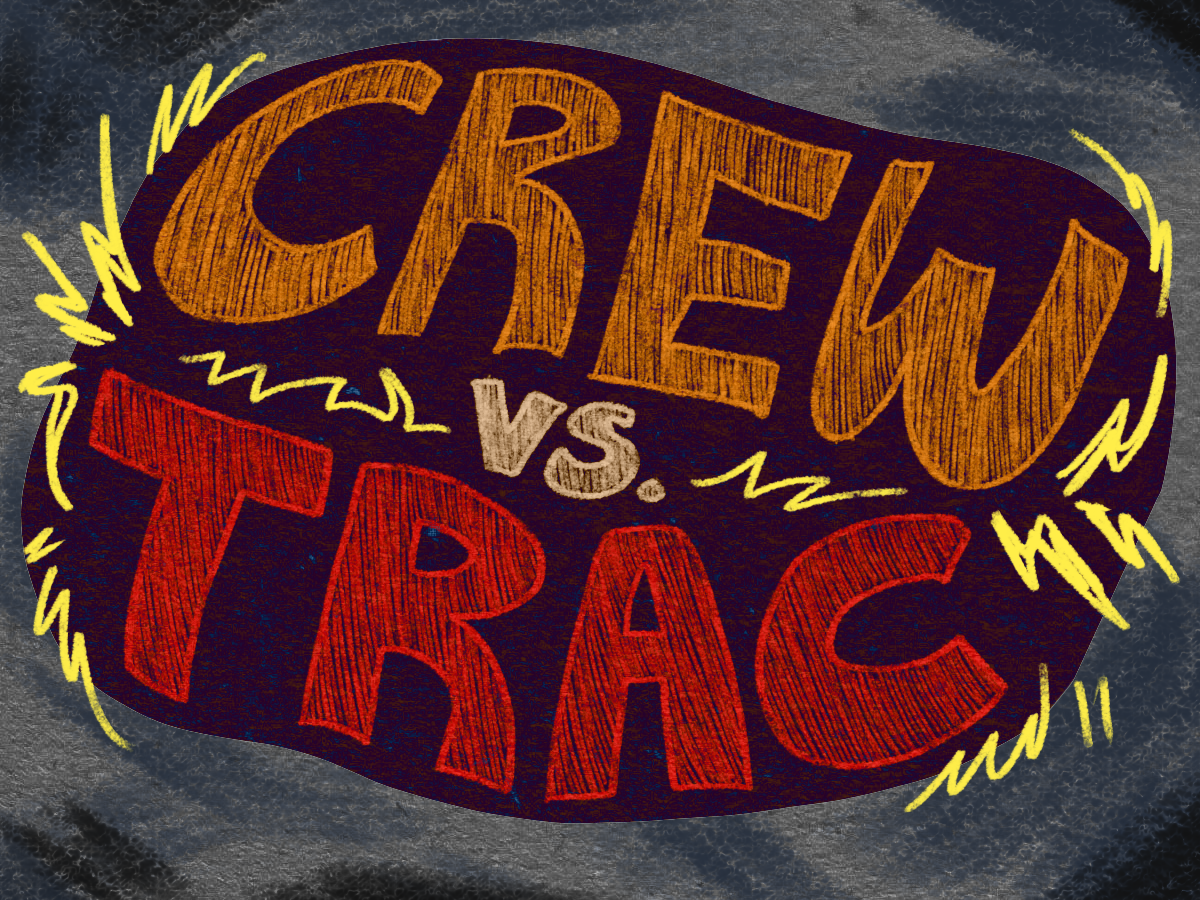After a lengthy legal battle this summer, CREW won over TRAC in a secret ballot.
Last week, after a three-week voting period, CREW announced their win in the race to become the official union representing Concordia’s teaching assistants (TAs) and research assistants (RAs).
The vote opposed the Concordia Research and Education Workers Union (CREW) to the Teaching and Research Assistants at Concordia Union’s (TRAC). CREW won with 71.7 per cent of votes, as they announced on their Instagram account on Nov. 15.
“For us to win by such a landslide, it was humbling in the best way,” said Frances Davenport, CREW militant organizer and master’s student in chemistry. “I think it foreshadows what’s to come. I think it shows a level of unity that we have managed to establish, and that we are hoping to carry with us into bargaining, to get us the things that we campaigned on that we swore we were ready to fight for.”
CREW was created last March when TRAC’s executive team resigned, saying they could not get the gains they wanted for Concordia’s TAs and RAs while working under TRAC’s parent union, the Public Service Alliance of Canada (PSAC).
Despite collecting a majority of memberships last semester, CREW was unable to be certified in court this summer. TRAC’s Collective Agreement had never officially been filed, which gave them a chance to re-file over the summer and keep power.
Instead of a lengthy legal battle, a vote was held between Oct. 23 and Nov. 13 to determine which union TAs and RAs wanted to be represented by.
The CREW team got the election results on Nov. 13, but after what they had been through over the summer, they did not relax until they got certification on Nov. 15.
“We were still holding our breath for sure,” Davenport said. “Because, we’d been fooled once.”
Stephanie Eccles, CREW campaign coordinator, said the CREW win is much bigger than just their union. “It’s an accomplishment for workers everywhere in many ways, because if anything, this is just a boost to the importance of reclaiming unions for the workers,” she said.
Eccles explained that the next step for CREW is to hold a General Assembly on Nov. 29, where TAs and RAs will vote on their constitution and elect an executive and bargaining team. Then, once the winter semester begins, the union will start bargaining for their new Collective Agreement.
“We always and forever will be the CREW campaign, but CREW is everyone now,” Davenport said. “And so, while we have a vested interest in seeing a smooth transition, and we have a vested interest and a passion and fighting power for achieving the goals we set out to achieve, we are counting on the community we’ve built to come forward.”
This semester’s campaigning period was marked by accusations of misinformation by both TRAC and CREW. One of the claims TRAC made was that choosing CREW would delay bargaining, since it would take time to get the union up and running—a claim that Davenport and Eccles find ironic.
“CREW started for many reasons, but a prominent one was how long it was taking PSAC to initiate bargaining,” Davenport said. She recalls being frustrated with TRAC’s executive team for not initiating bargaining, until she understood that it was being delayed by PSAC.
“We’ve been ready to bargain since CREW began,” she said.
TRAC did not respond to our request to comment on the elections.
Since they campaigned on their bargaining promise, the CREW team has already prepared their demands to the university. Some of their top demands are a pay raise above inflation for TAs and RAs, more action to protect their members from sexual harassment, and the removal of tiered salaries for RAs.
CREW’s job has only begun as they start preparing for negotiations. Davenport warned that the process might take time. “The surest way to get a bad deal is to want a quick one,” she said.
